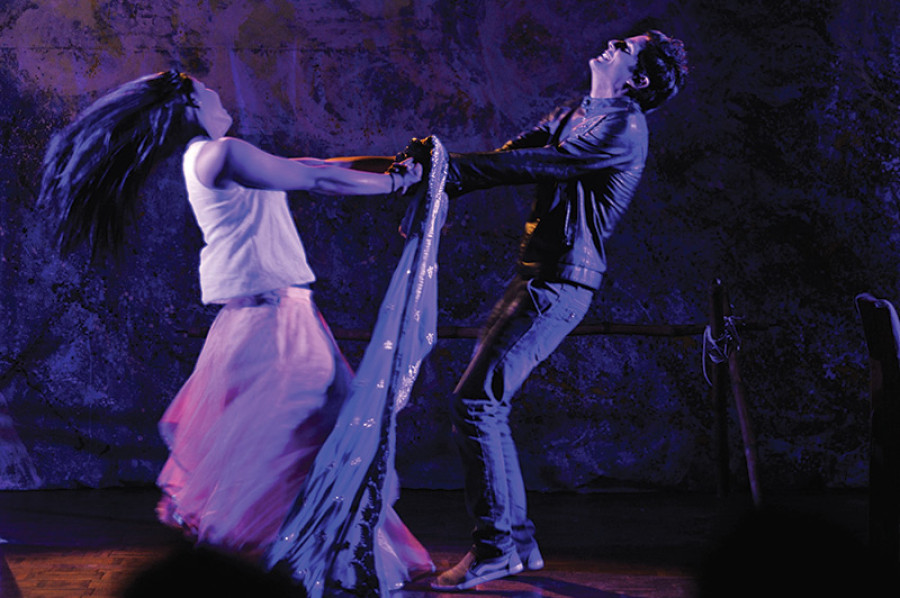Entertainment
From the margins to centre stage
“There is no space for us. No one lets us in. No one knocks on our doors. No one asks about our homes no one contacts our families.
Sanjit Bhakta Pradhananga
“There is no space for us. No one lets us in. No one knocks on our doors. No one asks about our homes no one contacts our families. They think we don’t need company, that we don’t need help. But we continue to exist. We continue to imagine possibilities, to dream up phrases and assemble them into sentences, to reach for an instrument and create our own music.”
—Charlie Chaulagain
(“No one sings our song”, TNM magazine, February 2017)
On October 6, 1998, a cold-blooded murder in the dusty railway town of Laramie, Wyoming reverberated around the world. Mathew Shepard, a 22-year-old gay, HIV positive student, was assaulted by two men, robbed, repeatedly beaten and left to die, tied to a fence in the outskirts of town. The homophobic crime rocked Laramie and Shepard’s murder became a rallying cry against hate crimes not just in the United States but the world over, eventually leading to the Mathew Shepard Hate Crime Prevention Act, which was signed into law in the US by former president Barack Obama in 2009.

In the immediate fallout of the incident in 1998, Moises Kaufman and actors from the New York-based Tectonic Theatre Project travelled to Laramie and gathered interviews of family, friends, police officers, community members and the murderers to learn more about the victim and the crime itself. These interviews culminated in The Laramie Project, a play, and eventually a docudrama about the brutal murder. Then ten years later the Tectonic company members returned to Laramie to see what had changed with regards to the attitude towards the LGBTIQ community. The second set of interviews was then converted into a follow-up play, The Larmie Project: Ten Years Later.
Now One World Theatre has brought these stories from halfway around the world to life in Kathmandu through a powerful adaptation that retains much of the original play while weaving it together with personal narratives from the Nepali LGBTIQ (Lesbian, Gay, Bi-sexual, Trangender, Intersex and Queer) community. Simple in its delivery, yet moving, this adaptation of The Laramie Project: Ten Years Later brings the voices of those traditionally resigned to the margins to the centre stage. And, in doing so, it stands not just as an important cornerstone for the LGBTIQ community in Nepal, but for Nepali theatre itself.
Yet, adapting a play set in Wyoming, an obscure state even for the American imagination, for Nepali sensibilities must have been no easy feat. To that end, directors Rajkumar Pudasaini, Bruno Deceukelier and Rose Schwietz have done a commendable job of trimming down the script without leaving holes in the plotline. For this adaptation, the original format of the play—where actors deliver the lines seated in rows and reading from the script with little enacting—has also been altered to better suit Nepali theatregoing experience.

The play in itself, even though slightly over two hours in its running time, flows seamlessly from scene to scene, as 17 actors from One World Theatre switch from one character to another. Here, some heavy accents do occasionally leave you straining your ear trying to grasp the context, but by and large the deliveries are excellent. Kurchi Dasgupta’s performance as Reggie Fluty, the first police officer to reach the crime scene of the Shepard murder, Justin Lansing’s eerily nonchalant rendition of the murder Aaron McKinney and Sajag Rana’s calm and poignant delivery as Dennis Shepard, Matthew’s father, are particularly powerful. One of Rana’s monologues, and actual transcript from Dennis Shepard’s appeal to the jury to spare his son’s murder from the death penalty, leave you with Goosebumps. In it, he says, “Mr McKinney, I’m going to grant you life, as hard as that is for me to do, because of Matthew. Every time you celebrate Christmas, a birthday, or the Fourth of July, remember that Matt isn’t. Every time that you wake up in that prison cell, remember that you had the opportunity and the ability to stop your actions that night. Every time that you see your cell mate, remember that you had a choice, and now you are living that choice. You robbed me of something very precious, and I will never forgive you for that. Mr McKinney, I give you life in the memory of one who no longer lives. May you have a long life, and may you thank Matthew every day for it.” It is here that the play becomes much larger than a denunciation of a hate crime and how it affected a community; it becomes one about the human condition—of how we love, how we grieve and of how we forgive.
The glue that sticks all the stories together, however, is the narratives from the Nepali LGBTIQ community excepted from the creative writing project Pride Climbing Higher. In it you hear, among others, the stories of a young man who has a tryst with a tourist in Thamel, only to receive an email weeks later telling him that he has now been infected with HIV; a young lesbian couple who attempt suicide by ingesting pesticides, only for one of them to succumb to the poison while the other lover lives; and a young boy in boarding school repeatedly abused by his classmates. These narratives give the play a solid Nepali grounding, reiterating that The Laramie Project that is being acted out on stage are not far off tales, but one that rings closer to home that we readily acknowledge. Add to that the hauntingly lyrical excerpts from Charlie Chaulagain’s heart wrenching eulogy for the LGBTIQ community—delivered poignantly by Milan Neupane—and you have unique narrative that is bound to keep you glued to your seat, maybe even occasionally reaching out for tissues.
A must see.




 20.12°C Kathmandu
20.12°C Kathmandu










